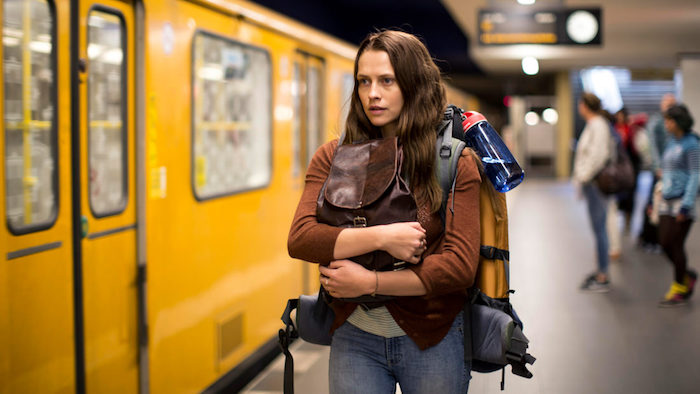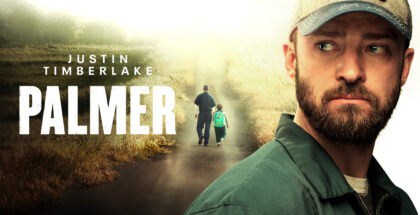VOD film review: Berlin Syndrome
Review Overview
Cast
7Cinematography
7Story
5Ian Winterton | On 09, Jun 2017
Director: Cate Shortland
Cast: Teresa Palmer, Max Riemelt, Matthias Habich
Certificate: 15
Watch Berlin Syndrome online in the UK: Curzon Home Cinema / Apple TV (iTunes) / Prime Video (Buy/Rent) / TalkTalk TV / Rakuten TV / Google Play
Australian director Cate Shortland gained international recognition with Somersault, her captivating 2004 debut. Berlin Syndrome has much in common with the earlier film – a lone, young female protagonist, a languorous pace, explicit sex and poetic cinematography – but somehow manages to disappoint.
It starts well, with Aussie backpacker and photographer Clare (Theresa Palmer) arriving in Berlin, turning the lens of her camera onto the city’s communist-era architecture. She meets Andi (Max Riemelt), a handsome school teacher, and they start dating. There’s something off about him – he’s a little intense and moody – but this doesn’t stop Clare going back to his apartment. The sex scene is simultaneously unsettling and titillating – an uncomfortable tone that is maintained for the rest of the movie. In the morning, Clare discovers Andi gone, and, locked in, she’s unable to leave the apartment. Slowly, it dawns on her that she’s a prisoner.
Following this strong first half-hour, Berlin Syndrome quickly sags under the weight of its fairly run-of-the-mill premise. It’s neither a full-on Gone Girl-style thriller – although it tries occasional to be just as slick – nor a tense exploration of confinement, as Home gave us. It’s never anything less than great to look at, but the story lacks focus, switching tracks after the abduction to spend as much time with Andi on the outside as with Clare in the apartment.
The narrative follows a predictable pattern, as Clare tries to escape and, after failing, grows institutionalised, eventually developing the Stockholm Syndrome to which the film’s title alludes. There are some nasty moments of sexual violence, and disturbing scenes of voyeurism. Perhaps we’re being challenged to see the world through Andi’s gaze, but it all feels sordid, rather than thought-provoking.
There are attempts, maybe, to link the oppression of the former communist regime to Clare’s predicament, but none of the parallels chime true. The two leads are strong and work hard to carry the movie, but ultimately, they’re unable to stop the movie becoming ploddingly dull – a bog-standard thriller masquerading as an art movie.



















